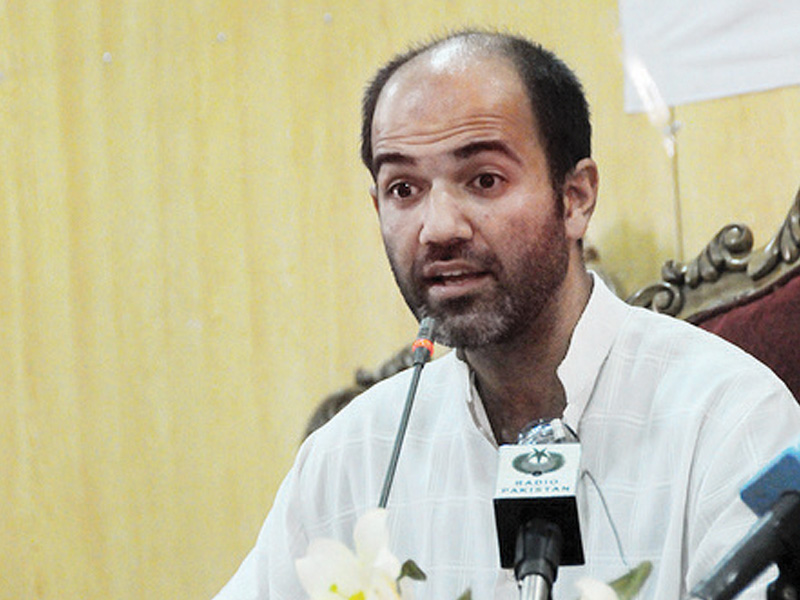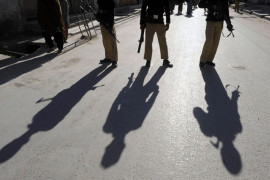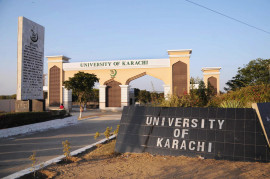
If you didn’t know of Aasim Sajjad Akhtar before the literature festival began, you must surely know him by now as the tall man in a dark blue kurta who loves to disagree.
Sitting on stage with two educationists - Dr Ishrat Husain of IBA and Faisal Mushtaq of Roots School System - Dr Akhtar smiles in disagreement. “I am sorry but I have to disagree with you here.” Akhtar does not think that the state has to be held accountable for failing to provide basic education to the people of this country.
He firmly believes it should be answerable for what it has taught the children up till now. “I am not interested in the kind of education that perpetuates a certain kind of ideology,” he said. “It is precisely the fact that we handed over all this to the market [he was hinting at NGOs] that we are what we are today.”
The professor at Quaid-e-Azam University in Islamabad argued that the question of content should be addressed in the initial stages as, at very impressionable ages, students are taught hate material. The teachers need to be equipped to instil a culture of critical thinking and the national curriculum needs to be revised, he said.
Mushtaq responded that the state needs help from the private sector mainly because it has failed to provide education and that it lacks the funds. Akhtar refused to accept that this is the case. “I don’t believe the government has no money. Is it because the money is tied up in ‘Islamic bombs’?”
Mushtaq shared a statistic that, out of the 70 million children in Pakistan, 20 million of them are out of school. “So first let’s get our children to school and then discuss the content and curriculum.” Obviously, Akhtar disagreed. He gave the example of Khyber-Pakhtunkhwa, which is facilitating education in six different mother tongues. He argued in favour of a decentralised curriculum to promote multiculturalism.
Adding fuel to the fire was none other than London-based journalist Ehsan Masood, who was moderating the session and keeping it alive with questions, such as ‘What will you do if you become the education minister for a day?’ Dr Husain was perhaps the only moderate voice in the midst of the heated argument between Mushtaq and Akhtar. He was of the view that there is a need to devolve education to the local district level.
The challenge of education in Pakistan is enormous and relying on just the state is not practical, he felt. “There are structural problems in the delivery of public education and the state should address them because it is the biggest beneficiary.” He added, however, that the state does have the responsibility of ensuring education to the poor but this responsibility is not synonymous to the delivery and provision of education.
Quoting Dr Husain from the past, Mushtaq said that the best return on a single dollar bill invested in Pakistan is investment on female education.
Published in The Express Tribune, February 9th, 2014.

1731911943-0/trump-(25)1731911943-0-165x106.webp)

1731911251-0/BeFunky-collage-(64)1731911251-0-165x106.webp)













COMMENTS
Comments are moderated and generally will be posted if they are on-topic and not abusive.
For more information, please see our Comments FAQ